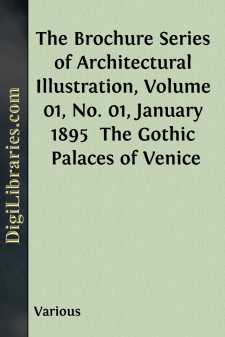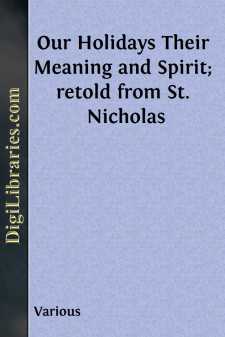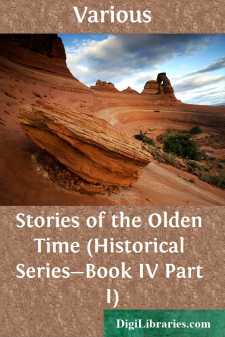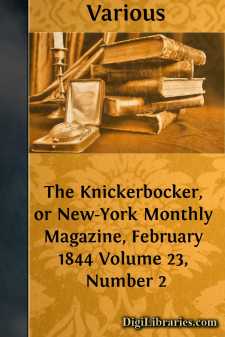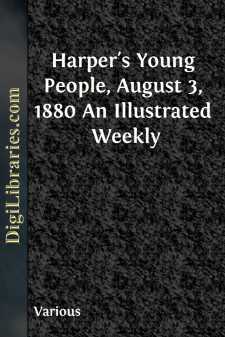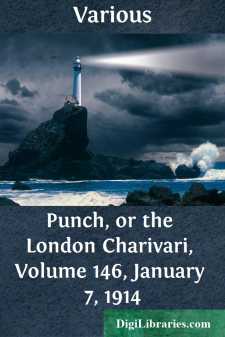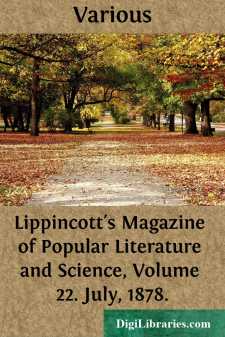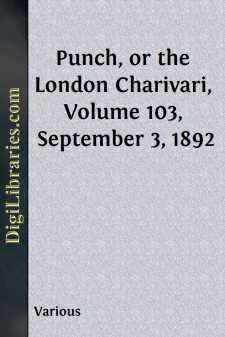Categories
- Antiques & Collectibles 13
- Architecture 36
- Art 48
- Bibles 22
- Biography & Autobiography 813
- Body, Mind & Spirit 142
- Business & Economics 28
- Children's Books 16
- Children's Fiction 13
- Computers 4
- Cooking 94
- Crafts & Hobbies 4
- Drama 346
- Education 46
- Family & Relationships 57
- Fiction 11829
- Games 19
- Gardening 17
- Health & Fitness 34
- History 1377
- House & Home 1
- Humor 147
- Juvenile Fiction 1873
- Juvenile Nonfiction 202
- Language Arts & Disciplines 88
- Law 16
- Literary Collections 686
- Literary Criticism 179
- Mathematics 13
- Medical 41
- Music 40
- Nature 179
- Non-Classifiable 1768
- Performing Arts 7
- Periodicals 1453
- Philosophy 64
- Photography 2
- Poetry 896
- Political Science 203
- Psychology 42
- Reference 154
- Religion 513
- Science 126
- Self-Help 84
- Social Science 81
- Sports & Recreation 34
- Study Aids 3
- Technology & Engineering 59
- Transportation 23
- Travel 463
- True Crime 29
Sort by:
by:
Various
I. SOUTHWEST ANGLE OF THE DUCAL PALACE, VENICE. Although the Ducal Palace is much larger than the other palaces of Venice, and intended for general civic uses as well as a residence for the Duke or Doge, it follows closely the type already described. It has undergone so many changes since its first foundation in about the year 800 (813 according to Ruskin), having been destroyed five times, and as...
more...
by:
Various
Our Holidays King Henry IV, Part I. ST. SATURDAY BY HENRY JOHNSTONEOh, Friday night's the queen of nights, because it ushers inThe Feast of good St. Saturday, when studying is a sin,When studying is a sin, boys, and we may go to playNot only in the afternoon, but all the livelong day. St. Saturday—so legends say—lived in the ages whenThe use of leisure still was known and current among...
more...
by:
Various
I.—ARION. 1. Arion was a famous musician, and dwelt at the court of Periander, King of Corinth, with whom he was a great favorite. There was a musical contest in Sicily, and Arion longed to compete for the prize. He told his wish to Periander, who besought him like a brother to give up the thought. "Pray stay with me," he said, "and be contented. He who strives to win may lose." Arion...
more...
by:
Various
SICILIAN SCENERY AND ANTIQUITIES. BY THOMAS COLE. A few months only have elapsed since I travelled over the classic land of Sicily; and the impressions left on my mind by its picturesqueness, fertility, and the grandeur of its architectural remains, are more vivid, and fraught with more sublime associations, than any I received during my late sojourn in Europe. The pleasure of travelling, it seems to...
more...
by:
Various
DOMINGO LOMELYN, JESTER TO HENRY VIII. Shakespeare, in the Second Part of Henry IV. act v. sc. 3 makes Silence sing the following scrap:— "Do me right, And dub me knight: Samingo." And Nash, in his Summer's Last Will and Testament, 1600 (reprinted in the last edition of Dodsley's Old Plays, vol. xi. p. 47.) has "Monsieur Mingo for quaffing doth surpass, In cup, in can, or glass;...
more...
by:
Various
GREAT MEN OF AMERICA. By MOSE SKINNER DANIEL WEBSTER Was the sort of a man you don't find laying round loose nowadays to any great extent. It's a pity his brains wasn't preserved in a glass case, where the imbecile lunatics at Washington could take a whiff occasionally. It would do 'em good. We are told that as a boy DANIEL was stupid, but this has been said of so many great men...
more...
by:
Various
The policeman did not return, and the boys slept until an hour after sunrise. They then rowed down the river to the steamboat landing, where they left their boat in charge of a boatman, and went to a hotel for breakfast. The waiters were rather astonished at the tremendous appetites displayed by the four sunburned boys, and there is no doubt that the landlord lost money that morning. After breakfast,...
more...
by:
Various
A PLAY OF FEATURES. [Being Sir GEORGE ALEXANDER'S production of The Attack at the St. James's.] SCENE—Alexandre Mérital's house. ACT I. Daniel Mérital. My father is a wonderful man. Leader of the Social Party in the Chamber of Deputies, noted among his colleagues for his absolute integrity, supported by the millionaire newspaper proprietor, Frépeau, whose motives, between ourselves,...
more...
by:
Various
HERE AND THERE IN OLD BRISTOL. GRAVE OF HANNAH MORE AT WRINGTON, NEAR BRISTOL.The streets of Bristol are, in a modern point of view, narrow and uninviting, yet if the visitor have a liking for the picturesque he will find much to interest him. There are plenty of streets crammed with old-time houses, thrusting out their upper stories beyond the lower, and with their many-gabled roofs seeming to heave...
more...
by:
Various
NOT GOING AWAY FOR THE HOLIDAYS. Cookson Gaze, Q.C. Because MARIA votes Eastbourne vulgar, and the girls (sorry now I sent them to that finishing-school at Clapham) laugh so consumedly whenever I open my mouth to address a native if we go to Trouville or Dinard. C. Jumper. Because the Governor thinks three days in the year enough for anybody. Eastend Dr. Because that fiver will just give little SALLY...
more...


